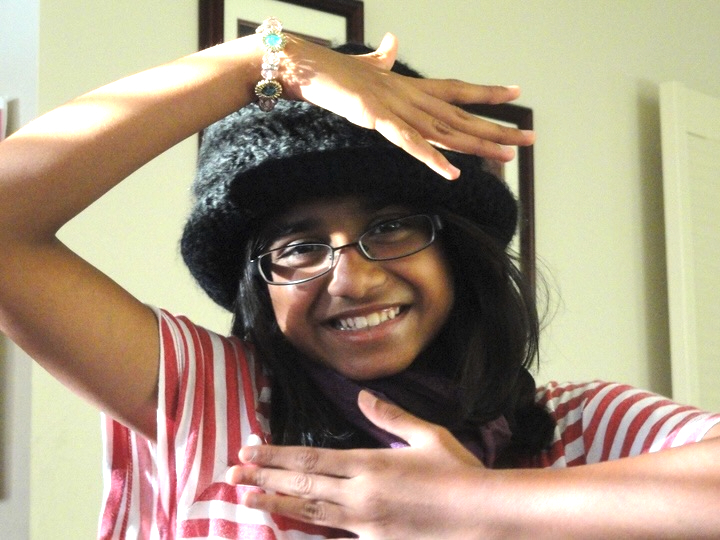By Shaki Sutharsan
When I was invited to my first sleepover, I felt more trepidation than excitement. I was 11-years-old and the only brown girl in the entire sixth grade. My friends in North York, Ont. looked different from the friends I had at my old school in Scarborough, Ont. Their lives looked different from mine too: most of them were white and came to school every day in their brand new UGG boots and sleek Lululemon leggings. They lived in big houses that had French doors and enough rooms that they didn’t have to share with their siblings. They had birthday parties at barns where we learned to ride horses and art studios where we created Jackson Pollock-style paintings.
“I’m not sure if I’ll be able to come,” I remember stuttering out to my friend Shelly*, who was insistent that I come to her birthday sleepover party. “I don’t know if my parents will let me.” It was an honest response—I didn’t think my parents would let me go. Being the eldest daughter to two immigrant parents, I was often the one testing limits, seeing how far they were willing to be pushed before a hard line was drawn. After much convincing, my parents did let me go. My mom helped me pack my overnight bag and my dad gave me his old flip phone so I could call them if I needed to.
The night was a classic rendition of a preteen girl sleepover. We watched an old cult classic comedy I’d never seen before, ate way too much candy and giggled our way through the night. It was late when we got into our sleeping bags on the basement floor, lying side by side like a row of sausage rolls.
“Being the eldest daughter to two immigrant parents, I was often the one testing limits”
“Anna*, I think Jacob* likes you,” someone piped up into the silence. The others chimed in with agreement and I did too because Jacob hadn’t exactly been subtle about his affections.
One by one, everyone in the room got named. Everyone got giggled at and fawned over as someone suggested the name of a boy in our class who might like them. I waited, bated breath, for my name to be called. Except it wasn’t. It stung a little but I didn’t think much of it. I was used to being the funny one, the smart one, the everything-but-pretty one.
The conversation tapered off and I thought that was that. I closed my eyes, snuggling into my sleeping bag.
“Shaki, I don’t think anyone likes you. You know, ‘cause you’re brown.”
At first, I wasn’t sure I’d heard correctly. There’s no way one of my friends just said that. Someone I’d considered to be my best friend. The silence rang loud. I waited, waited for someone to say, “What the hell? Why would you say that?” But no one did. Eventually, I heard a quiet snore fill the room one after the other.
I remember crying quietly to myself, thinking my parents had been right and I should’ve just stayed home.
I was 11 then. I’m 22 now. I thought I got over it a long time ago. But then, everytime someone looks at a picture of me and says I look cute—not hot, or beautiful, but cute, it makes me think about what the 11-year-old me was told so flippantly at that sleepover. Or when I look at the number of Hinge matches I have and wonder if that’s a normal amount. I think about why my name wasn’t mentioned when talking about who likes who. Whenever I take my pack of razors into the shower every April and look down at my hairy arms, I think about that sleepover.
When a boy tells me he likes me or someone ghosts me after a date, I think about that sleepover. When I scroll past a TikTok of my favourite singer and the comments are discussing whether they’d be able to pull him in real life, I wonder if he’d ever look my way.
There is a juvenility to these thoughts because the part of me that entertains them is my 11-year-old self who’s still there, at her first sleepover, cursed by her own friends to contend with her ugliness.
I’ve been to other sleepovers since then—better ones. Ones where I spent the night squished into a sofa bed next to my best friend with a sheet wrapped around my entire head to keep the mosquitos out of my ears during a long weekend getaway at my friend’s cottage. I’ve also had worse ones, where I spent the night curled up in the fetal position in my cousin’s bed, trying to convince the sushi I’d eaten to stay put.
With each one, the juvenile self-hatred is quelled. It’s quelled by the loving voices of my new friends. By the flickering light of a candle in my room and the playlist he made for me when we first met. My mother’s heart-shaped locket that lies against my chest and the crease of a new sari against my shoulder. It’s been replaced by the surety in my own beauty, one that I don’t cast any doubt over, because it just is.
*Names of the people mentioned are not real.












Leave a Reply